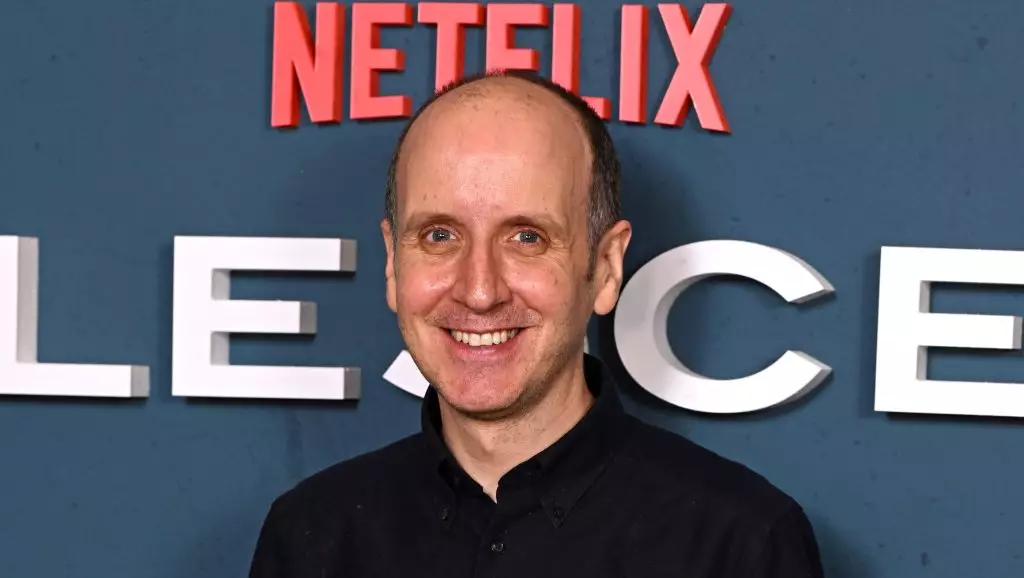In recent times, the British creative landscape has been bursting with revolutionary storytelling, highlighted by the success of series like Netflix’s “Adolescence.” However, Jack Thorne, a prominent voice in the realm of British drama, raises an alarm about a looming crisis that could stifle the evolution of such transformative narratives. The celebrated writer, known for his work on iconic projects like “His Dark Materials” and “Harry Potter and the Cursed Child,” has voiced a dire warning: without immediate attention to significant funding deficiencies, the storytelling traditions that underpin shows like “Adolescence” may soon unravel.
Thorne’s apprehension points toward a painful paradox: while platforms like Netflix can catapult series to incredible viewership and global recognition—his recent work on “Adolescence” topped the streaming service’s charts—he expresses concern that this success may come at the expense of local, low-budget productions traditionally nurtured by UK outlets like Channel 4 and the BBC. According to Thorne, the economic strain from budget cuts, alongside the financial complexities of international collaborations and inflation, poses a serious threat to the unique voices within British storytelling.
The Crucial Role of Local Narratives
The crux of Thorne’s argument underscores a critical issue: the necessity of preserving local narratives that delve into distinctive British experiences. He articulates a fear that the next generation of writers may forfeit the opportunity to explore their authentic stories amid an oversaturation of crime dramas dominating the market. It raises the question: might we lose touch with the very essence of British culture if the creative sector leans too heavily on international finance for production? Missing out on funding can trap emerging talent in a cycle of exclusion, hindering creative exploration that is rooted in identity and locality.
Thorne’s call for the UK government to implement immediate reforms—such as enhanced tax breaks and streaming levies—could be the lifeline that the industry desperately needs. In fact, the concept of a streamer levy is compelling. It would demand that streaming giants like Netflix contribute a portion of their British earnings to a creative fund designed to support local programming. This strategy emerges from a collaborative mindset rather than a punitive approach, fostering a relationship where multinational corporations play a pivotal role in sustaining local storytelling traditions.
Embracing a Collaborative Approach to Cultural Preservation
The collaboration Thorne advocates for is reminiscent of a movement towards inclusivity. Instead of alienating major players like Netflix, he proposes a partnership to bolster UK content. “It’s about fighting to build something together,” Thorne affirms, highlighting the notion that sustainable creativity is not an isolated endeavor, but rather a collective responsibility. His vision underscores the need for dialogue between creators and funding bodies, paving the way for the nurturing of innovative storytelling that celebrates diversity and richness within British culture.
Thorne’s revelation that “Adolescence” was initially in development with Amazon Prime before making its leap to Netflix illuminates the critical aspect of adaptability in the streaming era. He acknowledges the economic hurdles that UK broadcasters face in producing shows that require extensive funding—barriers that could ultimately limit the scope of projects that tackle varied and culturally relevant themes.
Preserving the Voice of the Emerging Writer
What’s at stake is far greater than the immediate success of a handful of series; it’s the erosion of a vibrant culture where emerging writers can freely share their perspectives. Addressing existing systemic issues requires both immediate action and a long-term commitment to nurturing diverse storytelling. Thorne’s fear that stories reflective of individual experiences may be overshadowed by formulaic plot lines is a poignant reminder that cultural richness doesn’t blossom in a vacuum.
The burgeoning tension between market forces and creative expression presents an existential challenge to all involved in the industry—writers, producers, and institutions alike. While Netflix’s global reach offers unprecedented opportunities, it should not overshadow the intrinsic value of homegrown talent. Someone must step in and protect the nuances of local storytelling from being homogenized amid an influx of foreign content.
As the landscape continues to evolve, the industry must prioritize fostering unique narratives that encapsulate the essence of British life, whilst welcoming the new dynamics reshaping global storytelling—an endeavor worthy of every stakeholder’s dedication and effort.
